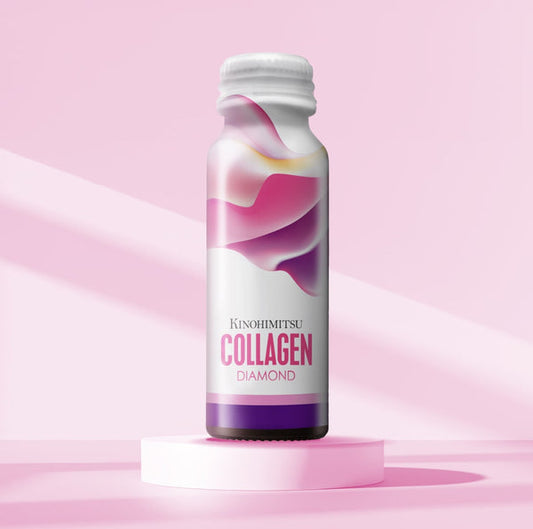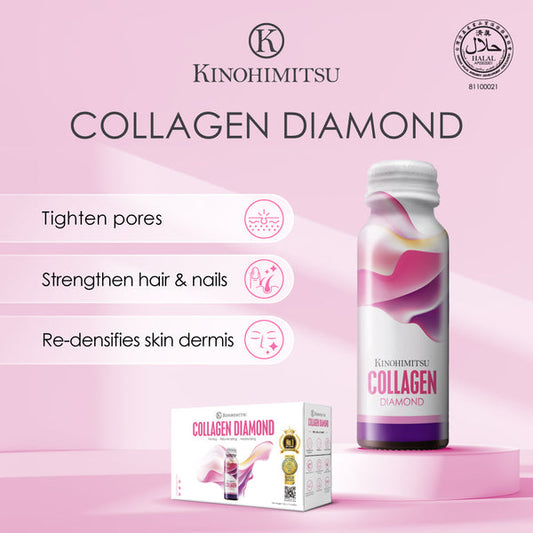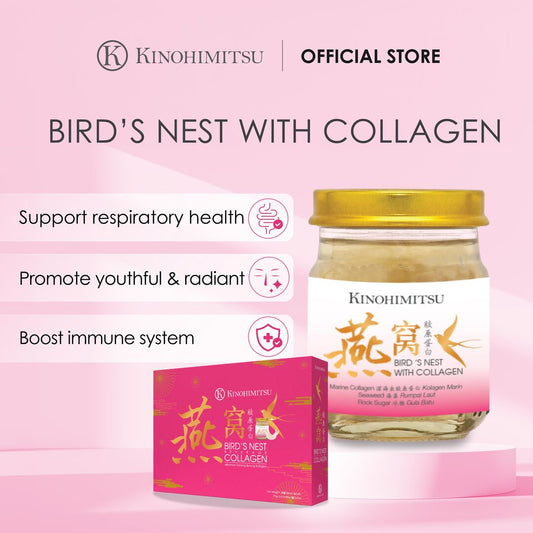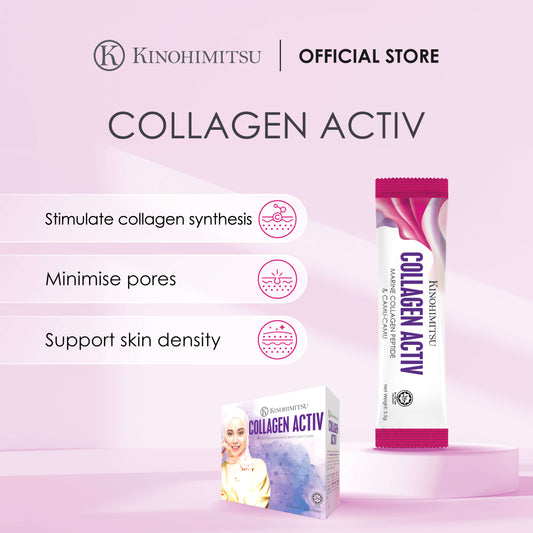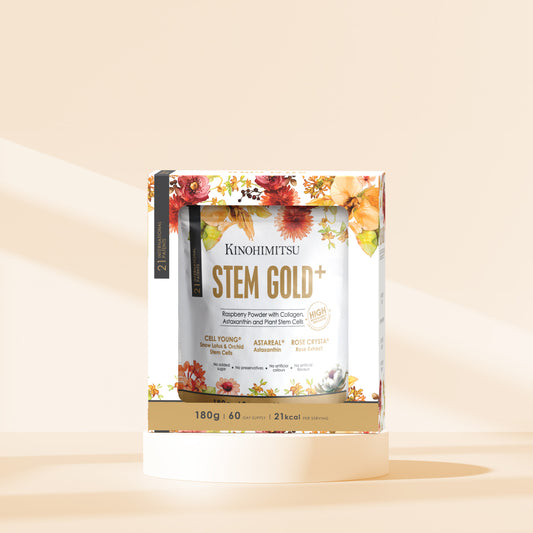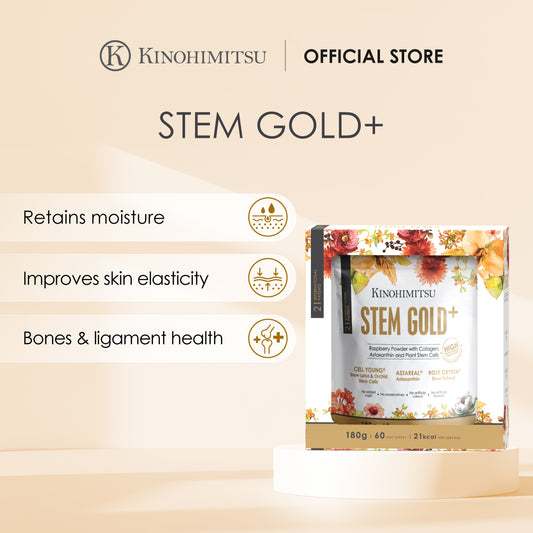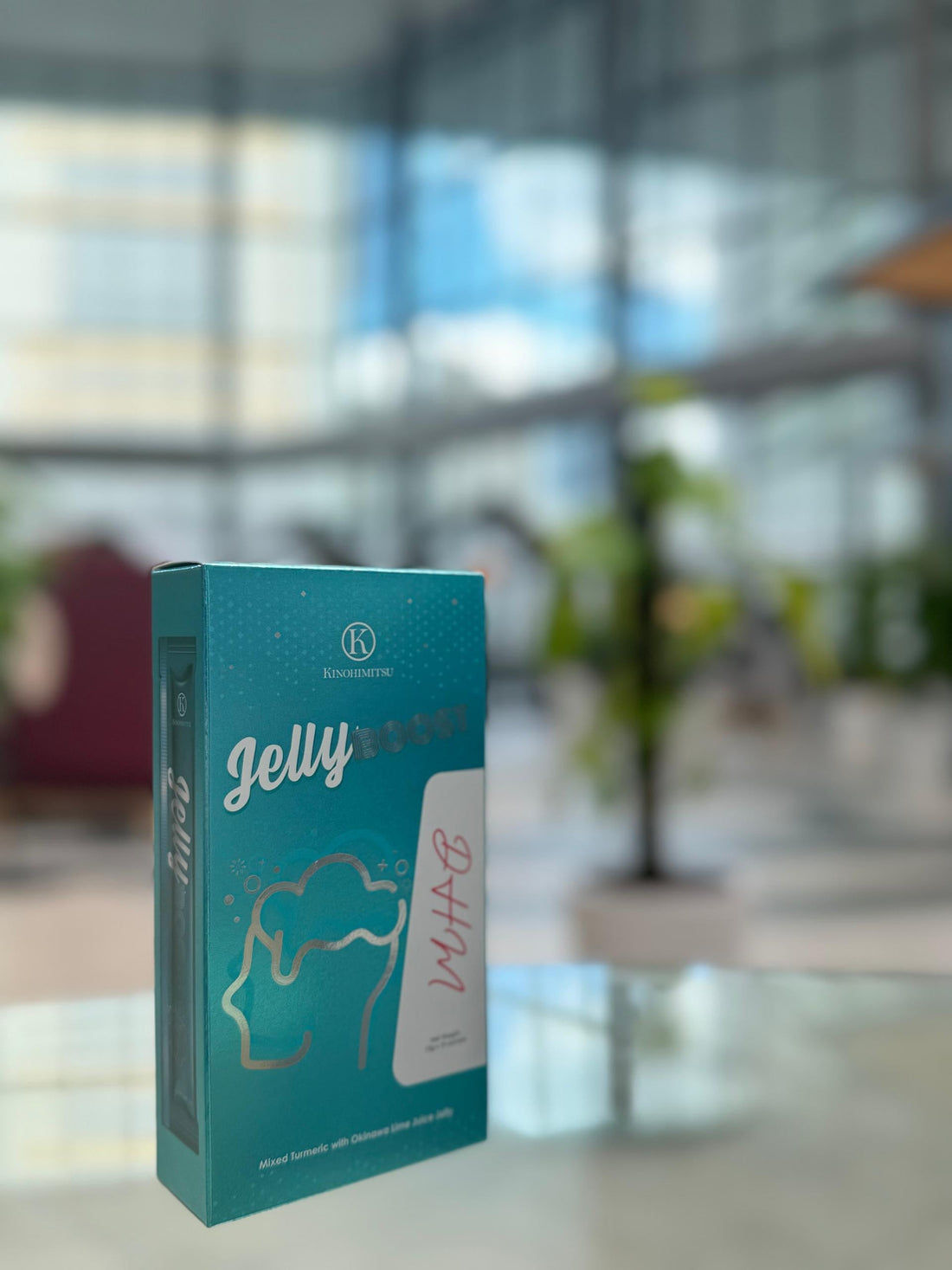
Natural Ways to Boost Immunity

In today's fast-paced world, finding effective ways to boost immunity has never been more important. Did you know that approximately 70% of your immune system's cells are located in your gut? This fascinating fact highlights the critical connection between what you eat, your lifestyle choices, and your body's ability to fight off illnesses. With winter approaching and the rise of various viral infections, many are seeking natural methods to enhance their immune defenses. From nourishing foods and regular exercise to stress management and herbal supplements, there's a wealth of strategies available that can empower you to support your health. Dive into this guide to explore effective, natural ways to strengthen your immune system and promote overall well-being.
Kinohimitsu JellyBoost DHM: A Natural Immune Support
Kinohimitsu JellyBoost DHM is a novel addition to the realm of immune support products. This natural jelly is designed to provide a comprehensive approach to enhancing immunity and overall health.
Key Ingredients and Their Benefits
Kinohimitsu JellyBoost DHM contains several powerful ingredients that work synergistically to support immune function:
-
Dihydromyricetin (DHM):
Known for its antioxidant properties, DHM may help protect immune cells from oxidative stress, improving their overall function. It is also linked to enhanced liver function and detoxification, indirectly supporting immune health. -
Turmeric Extract:
A natural anti-inflammatory ingredient that supports liver detoxification and boosts immune response. Turmeric is rich in curcumin, a compound known for its antioxidant effects, which help reduce oxidative damage to cells. -
Artichoke Extract:
Helps promote liver health and detoxification by supporting bile production. Artichoke extract also has antioxidant properties, contributing to overall immune function and digestive health.
These key ingredients ensure that JellyBoost DHM offers not only liver and detox benefits but also strengthens your immune system for a healthier, more resilient lifestyle.
How to Use Kinohimitsu JellyBoost DHM
Kinohimitsu JellyBoost DHM is easy to incorporate into your daily routine. Consume one jelly per day, ideally in the morning or when feeling under the weather. This convenient format makes it an excellent option for those on the go.
"Discover the powerful benefits of Kinohimitsu JellyBoost DHM—your go-to solution for immune support and post-party recovery!"
Understanding Immunity
What is Immunity?
Immunity refers to the body's ability to resist infections and diseases. It is a complex system made up of various cells, tissues, and organs that work together to defend against harmful pathogens such as bacteria, viruses, and fungi. Maintaining a strong immune system is crucial for overall health and well-being. Immunity can be classified into two main types: innate immunity, which is the body's first line of defense and is present from birth, and adaptive immunity, which develops over time as the body encounters different pathogens.
The Role of the Immune System
The immune system has several key functions, including:
- Identifying and neutralizing foreign invaders: Specialized immune cells recognize and attack pathogens.
- Producing antibodies to fight infections: Antibodies are proteins that specifically target and neutralize pathogens.
- Destroying infected cells: Immune cells can identify and eliminate cells that have been compromised by pathogens.
- Remembering past infections to provide quicker responses in the future: Memory cells remain in the body after an infection, allowing for a faster response if the same pathogen is encountered again.
Factors Affecting Immunity
Several factors can influence the strength of the immune system, including:
- Age: Immunity naturally decreases with age, as the body produces fewer immune cells.
- Nutrition: A balanced diet rich in vitamins and minerals supports immune health; deficiencies can lead to impaired immune function.
- Sleep: Restful sleep is vital for the immune system's recovery and optimal functioning.
- Stress: Chronic stress can weaken immunity, making individuals more susceptible to illness.
Natural Ways to Boost Immunity
Importance of Nutrition
Good nutrition plays a vital role in enhancing the immune system. Certain nutrients are essential for the proper functioning of your immune system. The relationship between diet and immunity is well-documented; for example, studies show that micronutrients such as vitamins A, C, D, E, and minerals like zinc and selenium are crucial for immune responses.
Key Nutrients for Immune Health
To effectively boost immunity, include the following nutrients in your daily diet:
- Vitamin C: Found in citrus fruits, strawberries, and bell peppers, vitamin C is vital for the growth and function of immune cells.
- Vitamin D: Sources include fatty fish, egg yolks, and fortified foods; vitamin D deficiency has been linked to increased susceptibility to infections.
- Zinc: Present in nuts, seeds, and whole grains, zinc is essential for immune cell function and signaling.
- Antioxidants: Such as those found in berries, green tea, and dark chocolate, antioxidants help reduce oxidative stress in the body, which can impair immune function.
Foods to Include in Your Diet
Incorporate these foods to help boost immunity:
- Citrus fruits: Rich in vitamin C, which enhances the production of white blood cells.
- Leafy greens: Packed with vitamins, minerals, and antioxidants, which support overall health.
- Nuts and seeds: Excellent sources of healthy fats and vitamins that aid in immune function.
- Yogurt and fermented foods: These foods promote gut health by providing probiotics that support a balanced microbiome.
- Garlic and ginger: Both have anti-inflammatory and immune-boosting properties, making them excellent additions to your diet.
The Power of Hydration
Staying hydrated is crucial for maintaining overall health, including a well-functioning immune system. Water makes up about 60% of the human body and plays a key role in various physiological processes, including immune responses.
How Water Supports Immune Function
Water helps in the circulation of nutrients and the elimination of toxins, which is essential for sustaining optimal immunity. Dehydration can lead to decreased blood flow and impaired immune responses, making it more challenging for the body to fight infections.
Herbal Teas and Infusions
In addition to water, herbal teas can provide beneficial compounds that support immune health:
- Green Tea: Rich in antioxidants, particularly catechins, green tea provides antiviral properties and can enhance immune function.
- Ginger Tea: Offers anti-inflammatory benefits that may help bolster the immune response and soothe digestive discomfort.
- Elderberry Tea: Known for its ability to reduce the duration of colds and flu, elderberry has been shown in studies to support immune health.
By integrating these holistic wellness practices into your lifestyle, you can naturally boost immunity and enhance your overall health.
Lifestyle Changes to Enhance Immunity
Regular Physical Activity
Incorporating regular physical activity into your routine is one of the most effective natural ways to boost immunity. Exercise not only enhances physical health but also plays a significant role in immune function. According to the CDC, adults should engage in at least 150 minutes of moderate-intensity aerobic activity each week.
Best Exercises for Immunity
Engaging in a variety of exercises can help improve your immune system, including:
- Aerobic Activities: Walking, jogging, cycling, and swimming boost circulation and enhance overall health. A study published in Frontiers in Immunology found that regular moderate exercise increases the circulation of immune cells.
- Strength Training: Lifting weights or resistance exercises improve muscle function and promote metabolic health, contributing to a healthier immune response.
- Flexibility Exercises: Yoga and stretching help to reduce stress and improve circulation, further supporting immune function.
How Exercise Affects Immune Response
Research shows that moderate, regular exercise can lead to an increase in immune cells and a reduction in inflammation. However, excessive exercise can have the opposite effect, potentially weakening the immune system. Striking a balance is essential for maintaining optimal immune health.
Sleep and Immunity
Quality sleep is essential for a well-functioning immune system. During sleep, the body undergoes critical processes that can help strengthen your defenses. A study in Sleep Health emphasizes that sleep duration and quality are directly linked to immune function.
The Connection Between Sleep and Immune Function
Poor sleep can lead to a decrease in the production of protective proteins and immune cells, making your body more susceptible to infection. Aim for 7-9 hours of restful sleep each night to support your immune health effectively.
Sleep Hygiene Tips
To improve your sleep quality and boost immunity, consider implementing these practices:
- Create a consistent sleep schedule: Go to bed and wake up at the same time each day to regulate your body's internal clock.
- Design a relaxing bedtime routine: Engage in calming activities such as reading or meditating to signal your body that it's time to wind down.
- Keep your sleep environment comfortable: Ensure that your room is dark, quiet, and cool to promote better sleep quality.
By making these lifestyle changes and staying active, you can naturally boost immunity and enhance your overall health.
Stress Management Techniques
How Stress Impacts Immunity
Stress is an unavoidable part of life, but chronic stress can have detrimental effects on the immune system. When stressed, the body releases hormones such as cortisol, which can suppress immune function and increase susceptibility to illness. A study published in Psychosomatic Medicine found that high stress levels are associated with a weakened immune response.
Natural Methods to Reduce Stress
To effectively boost immunity, it’s important to incorporate stress management techniques into your daily routine. Here are some methods to consider:
- Mindfulness and Meditation: Mindfulness practices help increase awareness and focus while lowering stress levels. Regular meditation can improve emotional resilience, leading to a more robust immune response.
- Breathing Exercises: Deep breathing techniques promote relaxation and can help reduce stress-related anxiety. Consider practices like diaphragmatic breathing or box breathing to elevate your mental clarity and peace.
- Physical Activity: Exercise not only boosts immunity but also serves as an effective stress reliever. Aim for activities that you enjoy, whether it's a brisk walk, yoga, or dancing.
- Nature Walks: Spending time in nature can significantly reduce stress levels. A study in Environmental Science & Technology shows that even short walks in natural settings can lower cortisol levels and improve mood.
- Social Connections: Building and maintaining social connections can provide emotional support and reduce feelings of stress. Engage in conversations with friends or family to enhance your sense of belonging.
By implementing these stress management techniques, you can support your overall mental health and naturally boost immunity, ensuring that your body remains resilient against illnesses.
Additional Natural Remedies

Herbal Supplements and Adaptogens
Herbs and adaptogens have been used for centuries to enhance overall health and boost immunity. These natural remedies can help the body adapt to stress and improve immune responses.
Popular Herbal Supplements:
- Echinacea: Often used to prevent colds and flu, this herb may enhance the activity of immune cells. Research in the Journal of Alternative and Complementary Medicine suggests that echinacea may help reduce the risk of respiratory infections.
- Elderberry: Rich in antioxidants, elderberry has been shown to help reduce the duration and severity of colds and flu symptoms. A study in The Journal of Functional Foods highlights elderberry's ability to inhibit viral replication.
- Turmeric: Contains curcumin, a powerful anti-inflammatory compound that supports immune health. Curcumin has been shown to modulate various immune responses and enhance the body's ability to combat infections.
Probiotics and Gut Health
Probiotics are beneficial bacteria that play a vital role in gut health and immune function. Research shows that a healthy gut microbiome supports the immune system and helps protect against infections. A balanced gut microbiome can improve the body’s immune response by promoting the activity of immune cells.
Sources of Probiotics
To enhance your gut health, consider incorporating these probiotic-rich foods into your diet:
- Yogurt: A great source of probiotics, which can help improve gut health and support immune function.
- Kefir: A fermented dairy product that is even richer in probiotics than yogurt.
- Sauerkraut and Kimchi: Fermented vegetables that provide beneficial bacteria and promote gut health.
- Miso and Tempeh: Fermented soybean products that can help restore the balance of gut bacteria.
Conclusion
Maintaining a robust immune system is essential for overall health and well-being. By adopting a holistic approach that includes proper nutrition, regular physical activity, stress management, and natural supplements like Kinohimitsu JellyBoost DHM, you can empower your immune defenses and promote long-term health. Remember to consult with a healthcare professional before adding any new supplements to your regimen. Embrace these natural ways to boost your immunity and enjoy a healthier, more resilient life!

